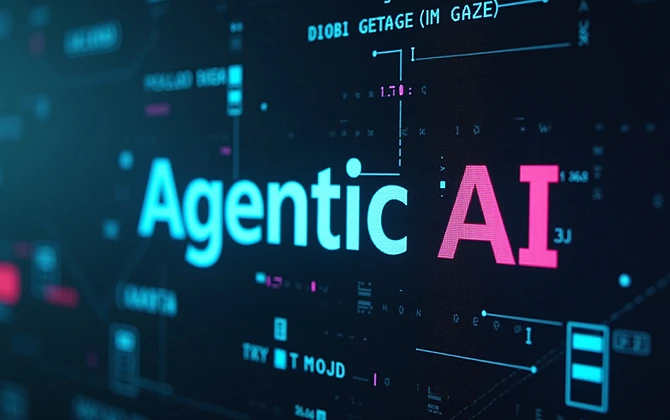Artificial intelligence (AI) has seen considerable development in recent years of independent digital agents, or AIs, that can perform acts, make decisions, and interact without any human contact. This advancement, dubbed Agentic AI, will change how various sectors function in terms of productivity, reducing operational costs, and redefining the role of human laborers.
Understanding Agentic AI
The term Agentic AI is used to denote independent AI systems that carry out specific tasks by making decisions with the help of real-time data and predefined goals. In simple terms, Agentic AIs are those systems which make decisions without the help of human intervention, unlike traditional AI that may need humans in the decision-making process. With the use of advanced machine learning techniques, natural language processing, and real-time data analysis, Agentic AI can process information, learn from new situations, and act independently towards achieving certain goals.
Applications Across Industries
Customer Support Automation
At the customer service level, Agentic AI is revolutionizing business interactions with clients. Customer questions can be responded to, handled in real time, and problems solved autonomously by AI agents. An example is the Salesforce Agentforce platform, which has shown that the need for human intervention in customer support can be minimized as autonomous AI takes control of most service requests. This change not only improves response times but also enables human agents to work on more complicated tasks, thus enhancing overall service quality.
Cybersecurity and Threat Detection
The evolving character of cybersecurity threats requires prompt and adaptive countermeasures. Autonomous AI agents are capable of automatically scanning networks, identifying anomalies, and executing countermeasures in real-time. Through constant learning from evolving threats, such AI agents build the resilience of an organization against cyber attacks, guaranteeing effective protection of critical data and infrastructure.
Business Intelligence and Process Automation
Agentic AI is thus affecting enhanced business operations by automating dull tasks and providing actionable insights. AI agents can perform trend analysis, generate reports, and provide strategic recommendations through their ability to comprehensively cover the various aspects of large datasets. This feature enables businesses to make quick decisions, perform streamlined business processes, and manage their resources efficiently, thus allowing productivity gains and cost savings.
Challenges and Ethical Considerations
Although the advantages of Agentic AI are significant, a number of challenges and ethical issues need to be resolved:
Data Privacy and Security
Autonomous AI agents need access to large datasets, some of which might hold sensitive data. Having strong data privacy and security controls in place is critical to avoid unauthorized access and ensure user trust.
Bias and Fairness
AI systems are trained on actual world data, which could be somewhat biased. Unless well controlled, Agentic AI could amplify these biases and hence lead to discriminatory or unfair results. Programming methods to recognize and combat bias is central to the equitable deployment of AI.
Transparency and Accountability
The decision-making of autonomous AI agents may be opaque and complicated. Mechanisms for transparency and accountability are essential to comprehend AI-driven action and to rectify any unintended effects in a timely manner.
The Future of Work in the Age of Agentic AI
The application of Agentic AI across different industries is revolutionizing the world of work. Although there are fears of job loss from automation, past trends indicate that technological innovation tends to create new jobs and new job types. For instance, the emergence of AI has raised the demand for AI system development, management, and maintenance roles.
In addition, Agentic AI being capable of automating mundane and repetitive work can enhance human capabilities and free up employees for more creative and strategic work. Such a change could mean higher employee engagement and better opportunities for career development.
Conclusion
Agentic AI is among the most technologically advanced products with varied potential equity across numerous industries. While performing several complex jobs autonomously, these AI agents can be efficient, cut operational costs, enlighten human laborers about more novel things, and dispose of all monotonous tasks. Also typical of any scientific advancement, with Agentic AI, given, caution should be exercised regarding ethical, legal, and social considerations to ensure that while Agentic AI may provide gains to business profits, societies do not suffer due to its unconsidered adaptation. A balanced acceptance of this technology may include a future where humans and AI agents work seamlessly together to effect growth and innovation.
